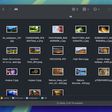Apple Adjusts Warranty Coverage in Australia to Comply With Consumer Protections Law
 Australian law requires that sellers of products offer warranties for "a reasonable period from date of delivery until the failure becomes apparent". This has been interpreted as two-years for computers. Apple's standard warranty on all products runs for one-year, while AppleCare extends coverage to three years on Macs.
Australian law requires that sellers of products offer warranties for "a reasonable period from date of delivery until the failure becomes apparent". This has been interpreted as two-years for computers. Apple's standard warranty on all products runs for one-year, while AppleCare extends coverage to three years on Macs.
The Sydney Morning Herald writes of the warranty requirements, including that Apple Retail Store employees and authorized resellers have been notified of a change in how Apple handles warranty claims in the country.
On Friday, Apple's Australian retail store staff and authorised Apple resellers were notified about a change to Apple's internal policy on how it handled standard warranty claims.
Until now, many Apple consumers have reported on forums that store staff have only ever discussed with them a standard 12-month manufacturer warranty when selling, fixing or replacing Apple goods.
Apple has now changed this from 12 months to 24, which appears to bring it in line with Australian Consumer Law.
The consumer protection law, which Apple details in a page on its website, requires purchasers to contact the seller of a product for a warranty claim rather than the manufacturer. This means that if a Mac is purchased from a non-Apple retailer, that retailer is responsible for satisfying the requirements of the Australian law. It also means that Apple is responsible for warranty claims on third-party products purchased at Apple Retail Stores.
Apple notes that consumers can receive warranty coverage under the Australian consumer law, Apple's standard one-year warranty, or AppleCare, whichever is applicable.
The company had previously gotten in trouble over its AppleCare practices in Italy -- that country has a similar consumer protection law and Apple was fined more than a million dollars because it did not sufficiently notify customers about the standard warranties available to them under Italian law.
Popular Stories
iOS 19 will not be available on the iPhone XR, iPhone XS, or the iPhone XS Max, according a private account on social media site X that has accurately provided information on device compatibility in the past.
The iPhone XR, iPhone XS, and iPhone XS Max all have an A12 Bionic chip, so it looks like iOS 19 will discontinue support for that chip. All other iPhones that run iOS 18 are expected...
Apple today released iOS 18.4 and iPadOS 18.4, the fourth major updates to the iOS 18 and iPadOS 18 operating system updates that came out last year. iOS 18.4 and iPadOS 18.4 come two months after Apple released iOS 18.3 and iPadOS 18.3.
Subscribe to the MacRumors YouTube channel for more videos.
The new software can be downloaded on eligible iPhones and iPads over-the-air by going to...
Apple today released watchOS 11.4, the fourth major update to the operating system that runs on the Apple Watch. watchOS 11.4 is compatible with the Apple Watch Series 6 and later, all Apple Watch Ultra models, and the Apple Watch SE 2.
watchOS 11.4 can be downloaded on a connected iPhone by opening up the Apple Watch app and going to General > Software Update. To install the new software,...
Apple today released new firmware updates for all AirPods 4 and AirPods Pro 2 models. The new firmware is version 7E93, up from the 7B21 firmware that was installed on the AirPods Pro 2 and the 7B20 firmware available on the AirPods 4 and AirPods 4 with ANC.
It is not immediately clear what new features or changes are included in the new firmware, but we'll update this article should we find ...
While the iPhone 17 Pro and iPhone 17 Pro Max are not expected to launch until September, there are already plenty of rumors about the devices.
Below, we recap key changes rumored for the iPhone 17 Pro models as of March 2025:
Aluminum frame: iPhone 17 Pro models are rumored to have an aluminum frame, whereas the iPhone 15 Pro and iPhone 16 Pro models have a titanium frame, and the iPhone ...
Apple today released macOS Sequoia 15.4, the fourth major update to the macOS Sequoia operating system that launched in September. macOS Sequoia 15.4 comes two months after the launch of macOS Sequoia 15.3.
Mac users can download the macOS Sequoia update through the Software Update section of System Settings. It is available for free on all Macs able to run macOS 15.
With...
 Australian law requires that sellers of products offer warranties for "a reasonable period from date of delivery until the failure becomes apparent". This has been interpreted as two-years for computers. Apple's standard warranty on all products runs for one-year, while AppleCare extends coverage to three years on Macs.
Australian law requires that sellers of products offer warranties for "a reasonable period from date of delivery until the failure becomes apparent". This has been interpreted as two-years for computers. Apple's standard warranty on all products runs for one-year, while AppleCare extends coverage to three years on Macs. 



















